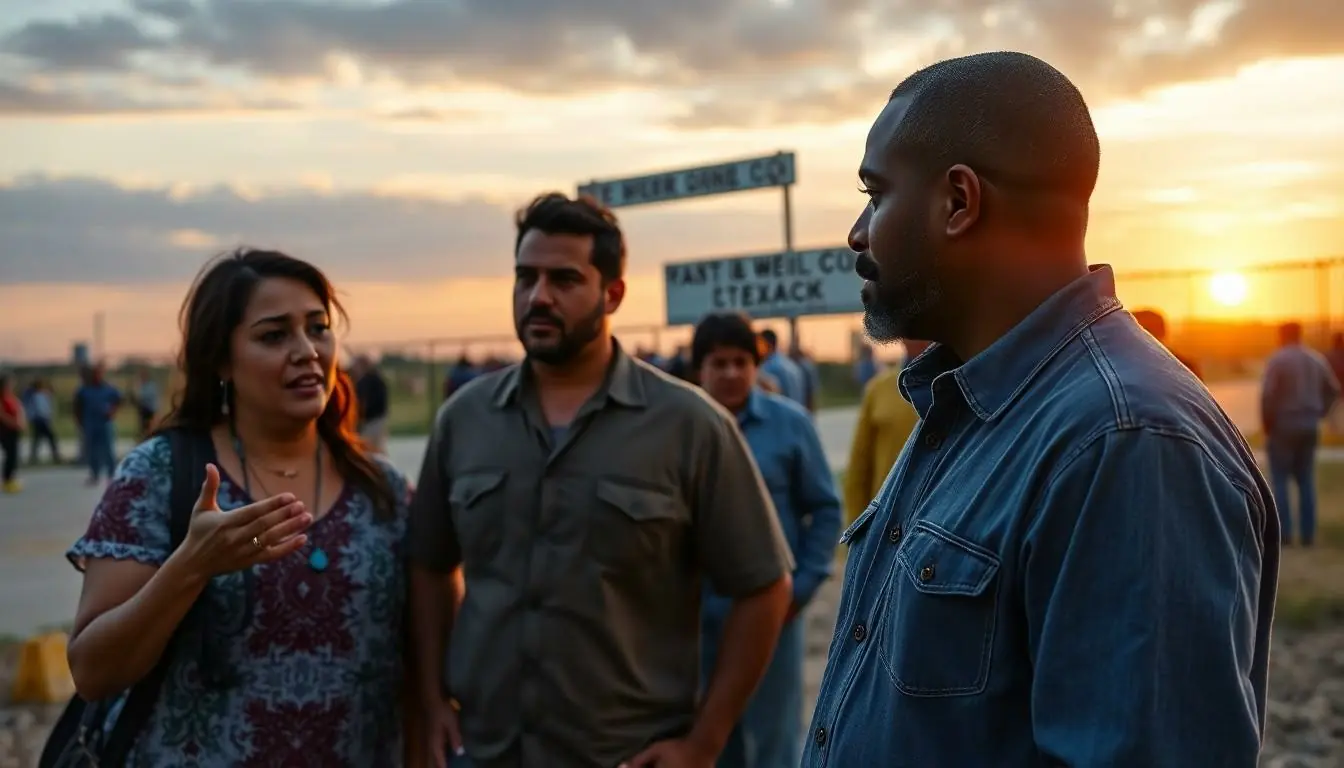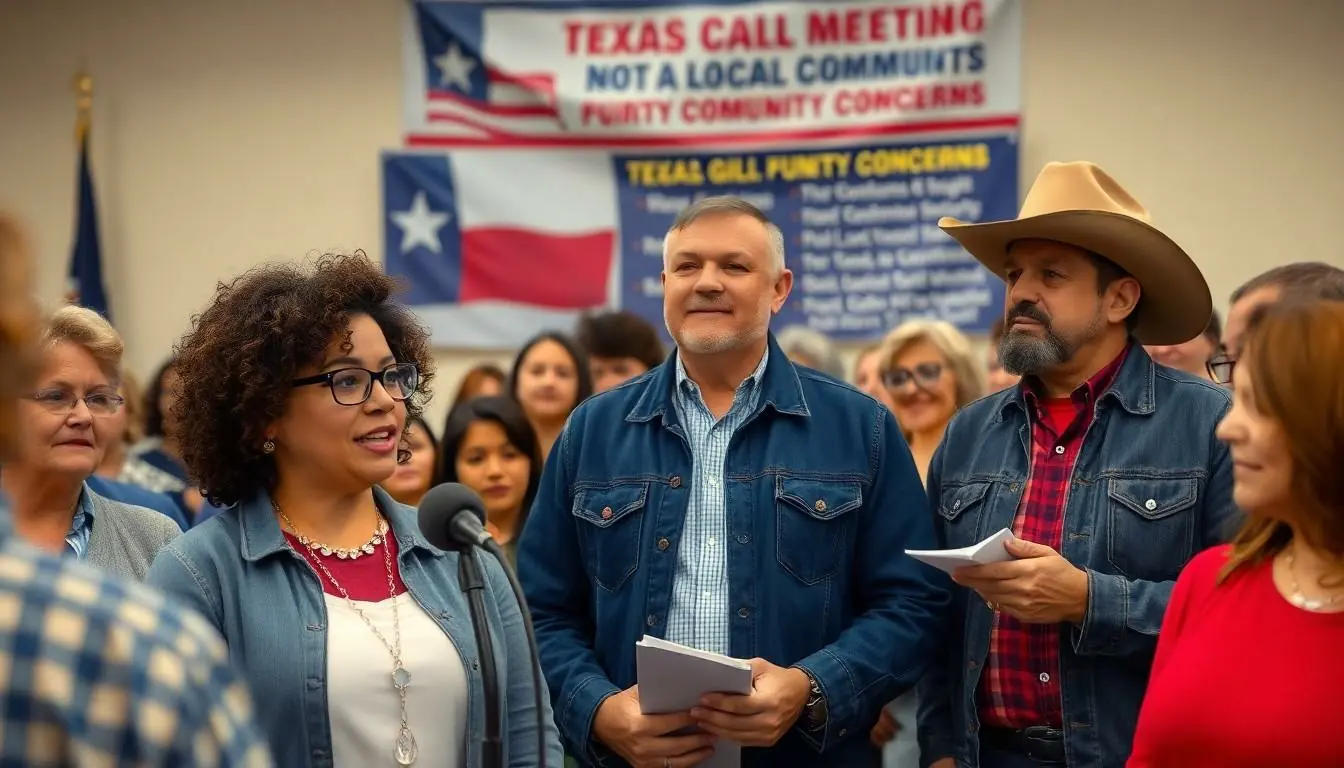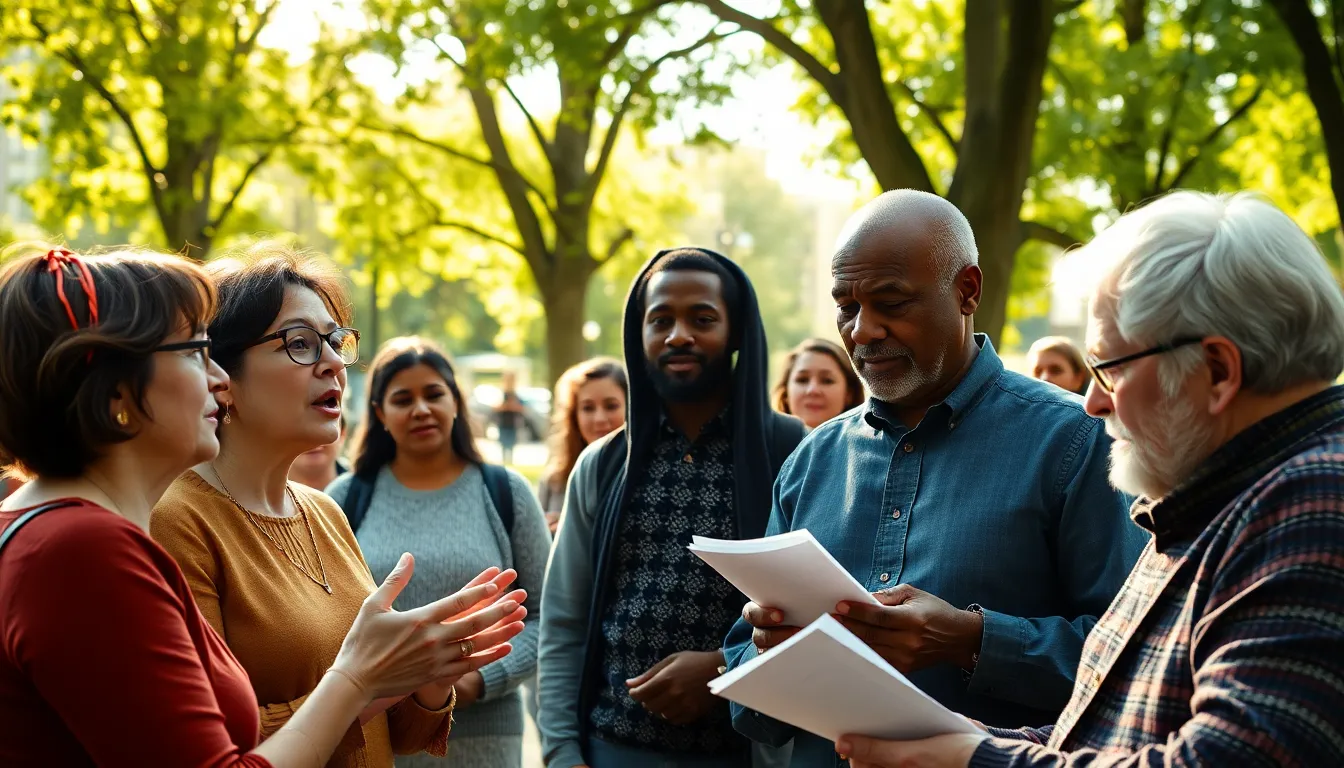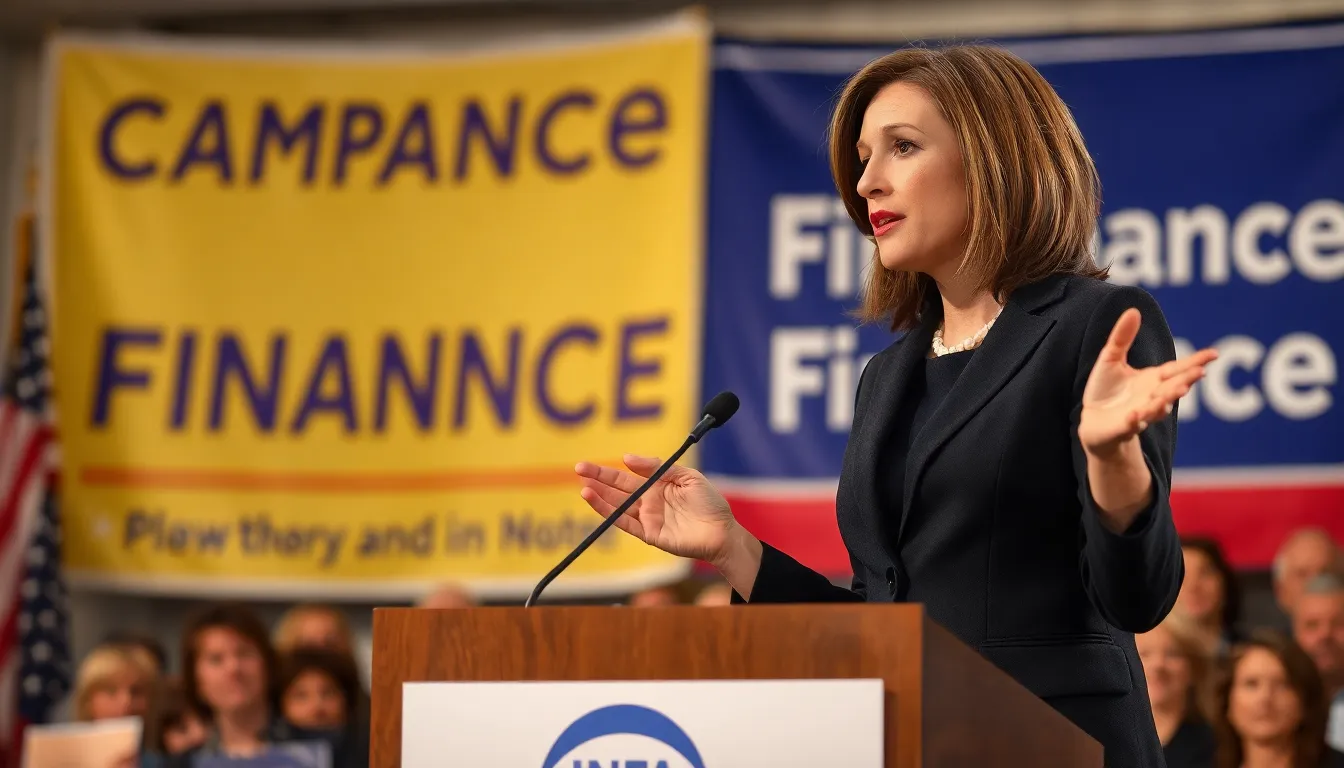Texas, the land of cowboys, barbecue, and a political landscape more colorful than a Texas sunset, is grappling with issues that have folks talking—and sometimes laughing. From debates over gun rights to the ongoing tussle over education and healthcare, the Lone Star State is a hotbed of political drama that could rival any soap opera.
Table of Contents
ToggleCurrent Political Landscape in Texas
Texas features a complex political landscape marked by strong party affiliations and influential figures. Gun rights, education reform, and healthcare access dominate conversations, shaping the state’s vibrant political climate.
Key Political Parties and Their Influence
Republicans maintain significant power in Texas, dominating statewide offices and the legislature. The party emphasizes limited government, conservative social policies, and strong support for gun rights. Democrats, while in the minority, seek to expand their influence through urban areas and diverse demographics. Progressives advocate for healthcare reforms, increased education funding, and comprehensive immigration policies. The presence of third parties, such as the Libertarian Party, adds depth to the political discourse, challenging the two-party system.
Major Political Figures
Governor Greg Abbott plays a crucial role in shaping Texas policy, particularly in education and public health. His administration focuses on conservative reforms, including tax cuts and stringent immigration measures. Lieutenant Governor Dan Patrick also holds considerable sway over the Senate, championing social issues and fiscal conservatism. On the Democratic side, figures like Beto O’Rourke and Representatives Sylvia Garcia and Joaquin Castro push for more progressive legislation. Their efforts highlight the growing competition for the hearts and minds of Texas voters.
Major Political Issues in Texas Today

Texas faces significant political issues today that center around immigration, gun control, and education reform.
Immigration Policies
Immigration policies generate heated debates in Texas, a state with a large border with Mexico. The state’s approach to immigration impacts local economies and communities significantly. Advocates argue for comprehensive reforms that prioritize citizenship pathways, while opponents favor stricter enforcement measures. Recent actions include Governor Greg Abbott’s order to deploy National Guard troops to the southern border, aiming to combat illegal crossings. Additionally, various local governments highlight the need for humane treatment of migrants, showcasing the divide between state and local policymakers.
Gun Control Debate
The gun control debate continues to be a pressing issue in Texas. Advocates for stricter regulations emphasize the need to address gun violence and enhance background checks. They cite statistics showing an increase in gun-related incidents over recent years. Conversely, opponents argue that the right to bear arms is fundamental to Texans. Texas has implemented legislation like the open carry law, which allows individuals to carry handguns in public, reflecting a strong culture of gun rights. This contrasting perspective creates a complex dialogue that influences electoral outcomes.
Education Reform
Education reform remains a contentious issue, with funding disparities affecting public schools across Texas. Legislators face pressure to increase budget allocations and address equity in educational opportunities. Numerous advocates stress the importance of investing in early childhood education and mental health resources. In response to these challenges, the state has explored initiatives aimed at improving teacher pay and classroom resources. Opposing viewpoints linger regarding standardized testing and school choice, further complicating the education landscape in Texas.
Voter Sentiment and Engagement
Voter sentiment reflects a complex landscape in Texas politics, deeply influenced by pressing issues and social dynamics.
Trends in Voter Turnout
Voter turnout in Texas has seen notable fluctuations in recent election cycles. In the 2020 presidential election, around 66.4% of eligible voters cast their ballots, marking a significant increase from 54.2% in 2016. This surge indicates growing political engagement, particularly among younger voters and minorities. Though turnout in urban areas rises, rural regions display stronger Republican support, affecting overall results. Shifts in demographics drive changes in engagement strategies, highlighting the importance of grassroots campaigns that resonate with diverse communities. Understanding these patterns will help parties adapt their approaches for upcoming elections.
Impact of Social Media on Politics
Social media plays a pivotal role in shaping political discourse in Texas. Platforms like Twitter and Facebook enable candidates to communicate directly with constituents, fostering real-time engagement. Content shared on social media influences voter perceptions and mobilizes communities around key issues, such as education funding and gun control. Additionally, misinformation can spread quickly, complicating the political landscape. Campaigns increasingly leverage these platforms to target specific demographics with tailored messages, enhancing voter mobilization tactics. The landscape continues to evolve as candidates explore innovative ways to utilize technology for outreach and engagement.
Legislative Developments
Texas lawmakers are actively shaping policies that impact the state’s political landscape. Legislative actions reflect ongoing debates about critical issues.
Recent Bills and Their Implications
Multiple bills have emerged in Texas, addressing hot-button topics like gun control and healthcare. One notable bill, aimed at reducing gun violence, proposes stricter background checks and red flag laws. Advocates argue this measure would enhance public safety, while opponents see it as an infringement on Second Amendment rights. Another significant piece of legislation focuses on healthcare, seeking to expand Medicaid coverage for low-income residents. Proponents claim this expansion addresses disparities in access to healthcare services, but critics raise concerns about budgeting and long-term implications. These bills underscore the ideological divides within the Texas legislature and highlight the tension between conservative and progressive agendas.
Importance of Local Governments
Local governments in Texas play a crucial role in shaping policies that resonate with communities. City councils and school boards often tackle issues that directly affect residents, such as public safety and education funding. Mayors and local officials advocate for increased resources to enhance infrastructure and support local businesses. In urban areas, local governance often reflects more progressive values, aligning with the desires of diverse populations. Citizens engaged at this level wield significant influence, as local elections can sway broader state politics. Elected officials at the local level address immediate needs while navigating the complex dynamics of state and national policies.
The political issues in Texas today illustrate a state in constant flux. As debates over gun rights, education, and healthcare continue to unfold, the influence of both major parties remains significant. With rising voter engagement and the emergence of local voices, Texans are increasingly shaping their political landscape. Legislative actions reflect deep ideological divides, underscoring the challenges faced by lawmakers. The dynamic interplay between conservative and progressive agendas highlights the complexity of governance in Texas. As the state navigates these pressing issues, the outcome will undoubtedly impact its future trajectory and the lives of its residents.



